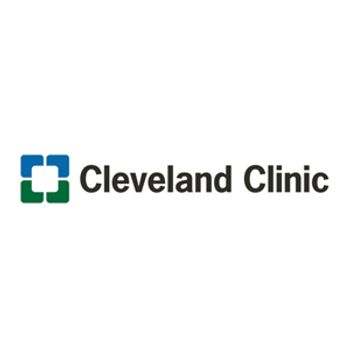
Explore innovative neurorehabilitation strategies for stroke recovery, emphasizing personalized approaches and advanced technologies to enhance patient outcomes.

Explore innovative neurorehabilitation strategies for stroke recovery, emphasizing personalized approaches and advanced technologies to enhance patient outcomes.

Cladribine shows promising results in reducing relapse rates for patients with relapsing multiple sclerosis after inadequate response to injectable therapies.

Test your neurology knowledge with NeurologyLive®'s weekly quiz series, featuring questions on a variety of clinical and historical neurology topics. This week's topic is on the Consortium of Multiple Sclerosis Centers (CMSC) Annual Meeting.
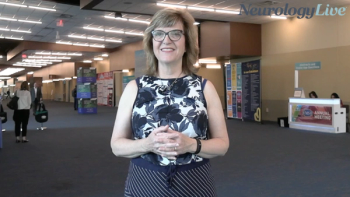
The associate professor of medicine at the Cleveland Clinic Lerner College of Medicine highlighted the importance of early, multidisciplinary intervention for patients with multiple sclerosis. [WATCH TIME: 3 minutes]
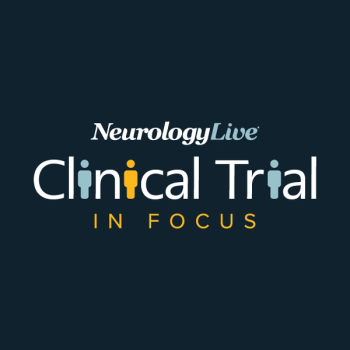
The phase 2 trial tests Roche’s investigational antisense oligonucleotide therapy tominersen in patients with early stages of Huntington disease, a disease with no FDA-approved therapies available.

Explore groundbreaking therapies in development for Huntington disease, targeting its root causes and offering hope for improved patient outcomes.

Neurology News Network. for the week ending May 31, 2025. [WATCH TIME: 4 minutes]
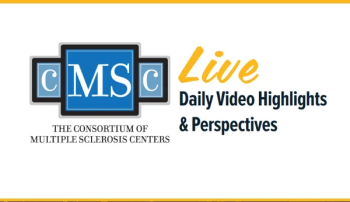
Host Jeffrey Wilken, PhD, chats with Riley Bove, MD, about the third day of the 2025 CMSC Annual Meeting in Phoenix, Arizona.

Take 5 minutes to catch up on NeurologyLive®'s highlights from the week ending May 30, 2025.

AHN Saint Vincent Hospital offers advanced neurological care, reducing wait times and providing local access to specialized treatments for various conditions.

A newly presented analysis of data from the Novartis Global Safety Database and the PRIM study assessed pregnancy and infant outcomes in women with multiple sclerosis treated with ofatumumab.
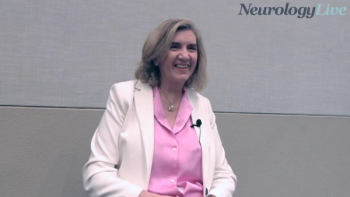
The vice chair of neurology at the Hospital Clínico San Carlos in Madrid highlighted the growing importance of detecting and managing progression in multiple sclerosis, particularly PIRA. [WATCH TIME: 6 minutes]

A study reveals long-term fumarate therapy significantly reduces infection-related healthcare utilization in multiple sclerosis patients compared to anti-CD20 treatments.

Mind Moments®, a podcast from NeurologyLive®, brings you an exclusive interview with Taylor Hess, MD. [LISTEN TIME: 10 minutes]

Host Jeffrey Wilken, PhD, chats with Anthony Feinstein, MPhil, PhD, FRCP, about the second day of the 2025 CMSC Annual Meeting in Phoenix, Arizona.
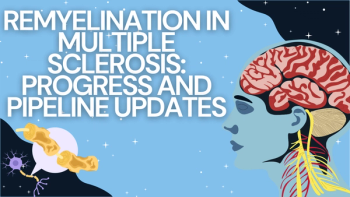
Explore the latest advancements in remyelination research for multiple sclerosis, from stem cells to small molecules, and discover what’s on the horizon for therapeutic development.

A new survey presented at CMSC 2025 highlighted the prevalence of burnout and job-related stress among neurology-based advanced practice providers and clinical pharmacists in the United States.

New findings reveal ozanimod shows no significant rebound effect in relapsing MS patients after treatment discontinuation, ensuring safer transitions.

Research highlights the benefits of natalizumab during pregnancy for women with multiple sclerosis, showing reduced disease activity and improved outcomes.

The ongoing PERSEUS trial explores tolebrutinib's potential as a treatment for primary progressive multiple sclerosis, with results anticipated soon.

Host Jeffrey Wilken, PhD, chats with Marie Namey, APRN, MSCN, about the first day of the 2025 CMSC Annual Meeting in Phoenix, Arizona.

Jeff Smith, PhD, chief executive officer at Precision Biosciences, explained the clinical potential and gene-editing mechanism of PBGENE-DMD, a one-time therapy targeting dystrophin mutations in Duchenne muscular dystrophy.

New findings reveal ocrelizumab significantly improves symptoms, cognition, and fatigue in Black and Hispanic patients with relapsing multiple sclerosis.
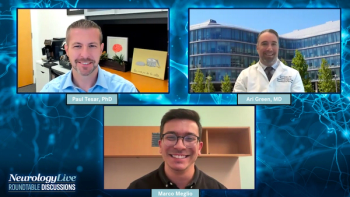
The pair of neurologists highlight key advances needed in imaging, trial design, and preclinical modeling to drive remyelination breakthroughs in MS.

The vice president and franchise lead of Autoimmune at Hansa Biopharma shed insights on imlifidase’s targeted mechanism and promising phase 2 data in treating Guillain-Barré syndrome.

The vice president and franchise lead of Autoimmune at Hansa Biopharma provided clinical insights on latest phase 2 safety and efficacy data on imlifidase, an IgG-cleaving antibody, in Guillain-Barré syndrome. [WATCH TIME: 3 minutes]
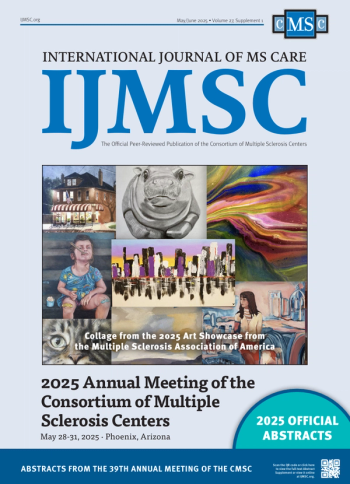
The 39th CMSC Annual Meeting is set to be held May 28-31, 2025, in Phoenix, Arizona. The International Journal of MS Care has published the abstracts.

Nuvig's NVG-2089 shows promise in CIDP treatment, offering a safer, more efficient alternative to IVIg with a patient-friendly trial design.

In this episode, a duo of neurologists examine the plausibility, limitations, and risks of holistic approaches to remyelination—and what patients should prioritize or avoid.

Panelists Ari Green, MD, and Paul Tesar, PhD, explore the scientific rationale and clinical complexity behind promising remyelination agents currently in development for multiple sclerosis.